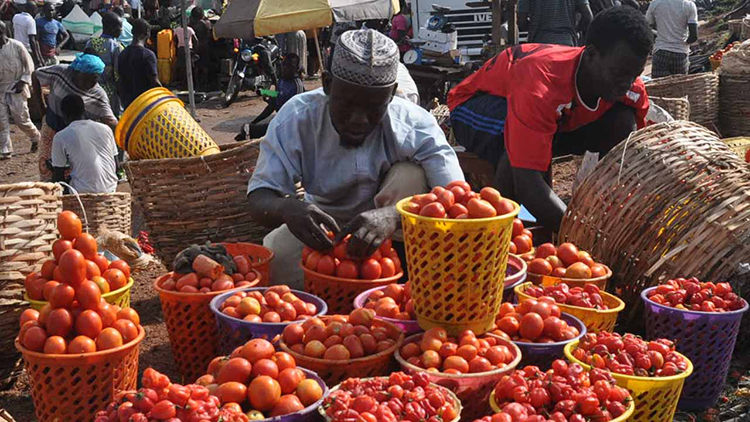
The current administration is artificially maintaining the naira’s official exchange rate, despite the naira’s considerable depreciation on the parallel market.
In a new biennial study titled Africa’s Pulse, the World Bank noted, “Additionally, the central bank has restricted importers’ access to foreign currency for 45 products and has cut supply to other importers.”
Food price inflation declined from a peak of 22.9% in March to 18.3% in October 2021, bringing inflation to a four-year high of 18.2%. In February 2022, headline inflation increased by 0.1 percentage point from the two preceding months to 15.7%
Despite fuel subsidies, food and fuel shortages weigh on consumer prices, according to the World Bank, which also stated that the war in Ukraine would likely aggravate inflation rates, as reported by The PUNCH.
“Despite fuel subsidies, food and fuel shortages put downward pressure on consumer prices. As the negative repercussions of the war in Ukraine continue to manifest, inflation is predicted to stay high, with an annual prediction of 14.8% for 2022.
“Headline inflation is expected to progressively drop to 13% and 11% in 2023 and 2024, respectively.”
Use market volatility to secure yourself with some passive income trading Forex, CFDs, Commodities in Nigeria with trusted brokers
According to the latest data from the National Bureau of Statistics (NBS), Nigeria’s Consumer Price Index (CPI) climbed to 15.92% in March, the highest level since November 2021, when it was 15.99%.
Nigeria is not immune to the present global inflation increase, as evidenced by the rising inflation rate.
The federal government began distributing 40,000 metric tonnes (mt) of grain on April 14 to help farmers cope with rising agricultural output prices across the country.
The distribution was kicked started by Agriculture and Rural Development Minister Mohammad Abubakar in the Karamajiji Internally Displaced Persons (IDP) Camp in Abuja, which he claimed was chosen to underscore the reality that IDPs are the most affected.
“High commodity prices on the market have affected the cost of manufacturing of numerous types of meals, including chicken and others. Some fowl will be included in this distribution because they are part of the dietary variety that we need to make sure is available. We are distributing to the public for this purpose,” – he said.
“This will be done not just by the Federal Ministry of Agriculture and Rural Development, but also by other ministries, such as the Ministry of Humanitarian Affairs, which will distribute roughly 12,000 metric tons.”
Subscribe for our newsletter
Get Forex brokers reviews, market insights, expert analytics and education material right into your inbox for free!